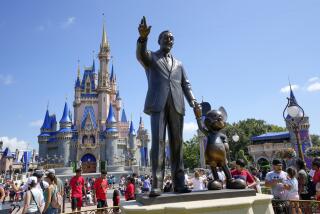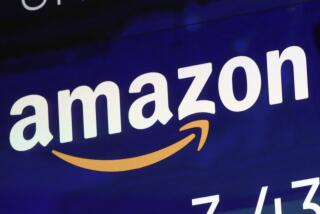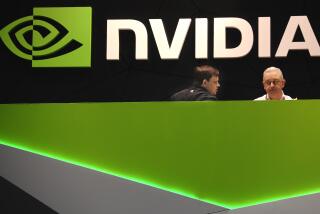Microsoft to Spend More on Research
- Share via
REDMOND, Wash. — Microsoft Corp. Chairman Bill Gates on Thursday forcefully disputed a growing view that the software giant he had founded 28 years ago was a mature company in a mature industry past the stage of rapid growth.
Speaking to Wall Street analysts and big shareholders assembled on Microsoft’s campus, he also criticized experts and competitors who said that improved software and hardware wouldn’t boost companies that used it, or the economy as a whole, as much in the future.
“We’re just at the beginning of what we can do with software,” Gates said during an annual series of briefings. “We’ve really just scratched the surface.”
To emphasize that point, he said Microsoft would increase its spending on research and development by 8% to $6.8 billion in the fiscal year that began July 1. Company researchers are trying to improve speech recognition for computers and incorporate digital handwriting into more kinds of tasks. They are also working on tools to make collaboration easier across various devices and make videoconferencing as routine as sending e-mail.
Microsoft Chief Executive Steve Ballmer, noting that “it’s strange for me to feel like I have to be a cheerleader,” said he saw opportunity in a wide range of markets. “We just look out there like kids in a candy store,” Ballmer said, rubbing his hands together with comic exaggeration.
Gates contested the notion, laid out in a recent Harvard Business Review article, that technology had lost its power to transform companies. He also challenged what he described as IBM Corp.’s position that technology was hopelessly complex and firms should simply hire outside consultants to make the best of it.
But there are growing signs that Microsoft has more in common with the likes of General Electric Co. than a Silicon Valley start-up.
Microsoft kicked off the year by announcing it would pay its first dividend to shareholders. This month, it said it would abandon its long-held practice of awarding stock options to employees and start offering them restricted shares, which don’t have to rise for employees to benefit.
Some Microsoft investors also interpret that shift as a precursor to a major dividend payout from the company’s $49-billion cash hoard.
A big dividend would undercut the value of traditional stock options, since share prices generally decline after big chunks of a company’s wealth are distributed.
In public and private comments Thursday, Microsoft executives signaled that cash was heading shareholders’ way come fall.
“It’s clear that current U.S. tax laws recently enacted make dividends more comparable to [stock] buybacks in terms of total return,” said Chief Financial Officer John Connors during his presentation. “We would ask that people be a little patient.”
Several shareholders said they would rather not wait for long. “I want them to give cash to shareholders,” Eastern Bank Vice President Terri Campbell said. “They’re too big to have the growth they’ve had” in the past.
The biggest threats to the company’s strategy, Connors said, are economic stagnation and growth of the free operating system Linux.
Connors said he expected shipments of server computers running Linux to increase 24% this fiscal year, compared with only a 10% increase in shipments of Windows servers.
Microsoft shares dipped 45 cents to $26 in Nasdaq trading.






